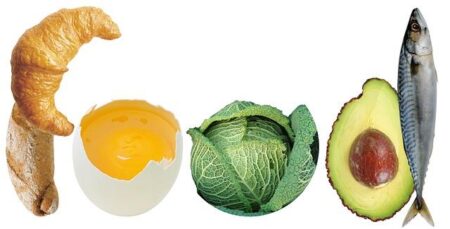Missouri soybean farmers are grappling with significant challenges as the ongoing trade dispute with China disrupts longstanding demand patterns and unsettles planting and marketing plans. Once a reliable export market for Missouri’s soybean crop, China’s tariffs and trade barriers have led to a sharp decline in sales, forcing farmers to reconsider their strategies amid growing economic uncertainty. This evolving trade conflict has not only impacted farm incomes but also raised broader questions about the future stability of agricultural markets in the region.
Missouri Soybean Farmers Face Market Volatility Amid Ongoing Chinese Trade Tensions
Missouri’s soybean industry is grappling with unprecedented hurdles as the ongoing trade friction with China disrupts long-standing export channels. Farmers report that unpredictable tariffs and shifting demand patterns have thrown off traditional planting and marketing strategies, leaving many uncertain about the upcoming growing season. With China historically absorbing a significant portion of Missouri’s soybean output, sudden downticks in orders have forced producers to reconsider their crop allocations and financial forecasts.
Key impacts felt by Missouri soybean farmers include:
- Reduced export volumes to China leading to oversupply concerns on the domestic market
- Lower price points causing tightened profit margins
- Increased reliance on alternative markets with fluctuating stability
- Disrupted logistics and supply chain complications affecting delivery schedules
| Factor | Pre-Tension Status | Current Status |
|---|---|---|
| Export Volume to China | ~60% of total exports | ~30% and declining |
| Average Farm Gate Price | $9.50 per bushel | $7.80 per bushel |
| Market Diversification | Limited | Expanding but volatile |
Impact of Trade Dispute Leads to Supply Chain Challenges and Revenue Losses for Local Growers
The ongoing trade dispute with China has sent ripples across Missouri’s agricultural landscape, striking the soybean market with unprecedented volatility. Local farmers, once confident in robust export channels, now face a sharp contraction in demand as tariffs and trade barriers disrupt long-established supply chains. The immediate consequence has been a scramble to find alternative markets, forcing growers to alter planting strategies and storage logistics amidst growing uncertainty. Many report delayed payments and fluctuating commodity prices, which have intensified financial strain during an already challenging season.
Key effects observed among Missouri soybean farmers include:
- Reduced export volumes to China by over 30% since the dispute began
- Increased costs associated with rerouting shipments and seeking new buyers
- Adverse impacts on local economies dependent on soybean production
| Impact Metric | Before Dispute | After Dispute |
|---|---|---|
| Export Volume (millions of bushels) | 45 | 31 |
| Average Price per Bushel (USD) | 9.50 | 8.20 |
| Farm Revenue (millions USD) | 140 | 110 |
Experts Urge Diversification and Government Support to Mitigate Financial Risks in Soybean Sector
Industry specialists are advocating for Missouri soybean farmers to reduce overreliance on a single export market to shield themselves from volatile trade environments. The escalating tensions with China have disrupted well-established demand patterns, exposing the vulnerabilities of a sector heavily concentrated on international sales. Experts emphasize that diversification of both markets and crops is essential to build resilience against future geopolitical uncertainties and price shocks.
Alongside diversification, there is a strong push for more robust government intervention to ease financial pressures on soybean producers. Proposed measures include:
- Targeted subsidies to offset losses incurred from export bans
- Investment in infrastructure to facilitate access to alternative markets
- Funding for research into crop rotation and sustainable farming practices
| Support Strategy | Expected Impact |
|---|---|
| Market Diversification Programs | Reduced dependency on China |
| Financial Aid Packages | Improved cash flow stability |
| Research & Innovation Grants | Enhanced sustainable practices |
In Conclusion
As Missouri soybean farmers navigate the ongoing challenges posed by the Chinese trade dispute, uncertainty continues to cloud the future of their planting decisions and market prospects. With demand disrupted and traditional trade channels unsettled, growers face a difficult path forward amid fluctuating tariffs and shifting global dynamics. How these tensions will ultimately reshape Missouri’s agricultural landscape remains to be seen, but one thing is clear: the ripple effects of the dispute extend far beyond the fields, impacting livelihoods and the broader economy alike.




